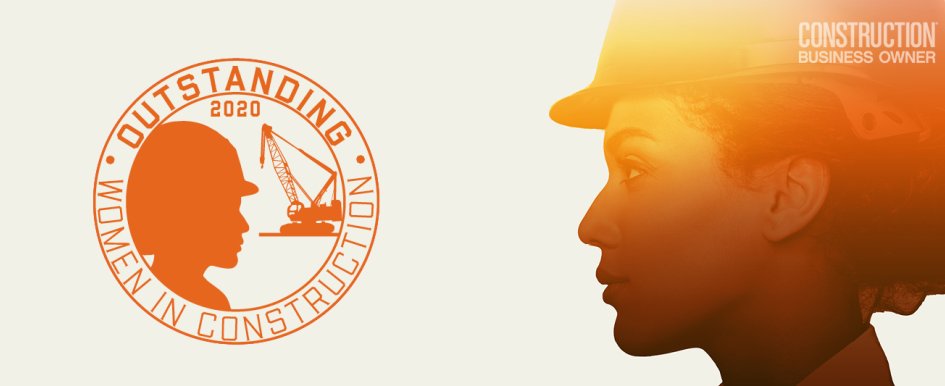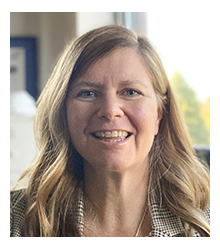

No.1 must-have: “Coffee. Without it, there’s no functioning.”
Much like the triathlons in which she competes, Melissa Samuel is all about going the distance. A lawyer by trade, Samuel first learned about the construction business by serving as in-house counsel for The Shaw Group. There, she learned everything she could about the legal, human resources (HR) and operational side of the construction business.
She eventually landed a position at Bernhard LLC, joining the company as vice president of HR and associate general counsel, handling all aspects of labor and employment matters, from both the operational HR side and the legal side. Bernhard LLC is one of the largest privately-owned engineering and contracting firms in the nation with 2,000 employees in 25 locations serving health care, education, commercial, government and industrial clients throughout the United States—which makes her role an important one.
Samuel was recently promoted to executive vice president of corporate administration, a role in which she still represents the legal and HR sides, but now also takes on the tasks of marketing and communications. Samuel has big plans to help shape the future of Bernhard LLC, namely its hiring and retention practices. Under her leadership, the company launched a corporatewide diversity and inclusion initiative to support change.
“As people move through different operational roles and become more senior in their careers, it tends to be very male dominated. We do not find as many women in leadership in project management or operational management because, typically, those folks came up through the trades. This imbalance presented a lot of challenges—but also opportunities—for us to do better.”
The committee launched in August 2020 and is now creating a strategic plan to support more gender and racial diversity in every way, including recruiting efforts, training and development, and specific career paths. Driven by questions like “How do we see diversity reaching leadership?” and “How do we encourage more women to join the industry?”, Samuel hopes to get answers that will guide committee priorities and actions for the coming year. This type of strategic leadership is what Samuel aims to instill in every aspect of her work.
“Sometimes, work can feel transactional: ’Handle this task. Take on this problem.’ What I’ve constantly fought for in my role is to be viewed as more of a strategic partner. ‘You say you want X outcome—let’s talk about how we get there together.’ And I try to constantly reshape that discussion,” said Samuel. She also advocates for the employees under her leadership to go after the same strategic stance in their own roles. Samuel says in this industry making sure women are being seen as strategic thinkers is one of their biggest challenges.
Among existing industry challenges, confronting the problems presented by COVID-19 is a new concern for Samuel. “I think COVID-19 has impacted construction industry in ways that will be felt for a long time to come. We’ve seen significant segments of the economy just dropping off. We’ve always had a significant amount of work in the hospitality industry, and that backlog was gone in the blink of an eye,” she said.
“Construction is challenging, not just because it’s a male-dominated industry, but also because it’s also packed with other perils like tight margins, extreme conditions, tough jobs, unrealistic expectations at every end of the project,” said Samuel.
Which, for Samuel, is all the more reason to stake strategic claim. “I tell my team that’s the way we add value, particularly because we aren’t out there turning wrenches. We’re in the office. We have to be strategic in our views and our interactions, because we need to take every opportunity we’re presented with to add value.” And that’s Samuel’s biggest piece of advice to anyone entering into a new role—particularly into a role in any corporate setting: “You’ve got to be proactive and strategic in everything that you do.”
However, Samuel is able to celebrate a simple victory: getting leadership to change their view of HR from transactional to strategic. “It is so easy to think about the people who support the back of the house as paper pushers. And it’s been exciting to see the change. Just getting people to think about us in a more strategic way meant that we could make suggestions for change, like developing our talent acquisition function. And instead of hiring a third party and using placement firms, we’ll invest a little bit of money in ourselves and see if we can make an improvement from a strategic perspective of our ability to recruit and retain people.
Low and behold, we did exactly that and substantially decreased our spend on third party in placement firms to the point where our small investment will probably pay for itself four times over. So just being able to change the view of how we work has been my biggest accomplishment to date, “said Samuel. Although, there’s one caveat to that: She’s not finished yet.
See all of this year's finalists by clicking here.
